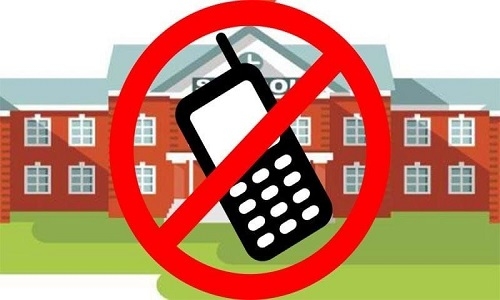‘In a bold move to improve academic focus and instill discipline, the Punjab Higher Education Department has announced a ban on the use of mobile phones in college classrooms for both students and teachers. The decision, which comes into effect immediately, aims to create a more conducive learning environment and minimize distractions caused by smartphones. This policy has sparked widespread discussion among educators, students, and parents, with many praising the initiative as a step toward fostering better academic outcomes.
The Rationale Behind the Ban
The use of mobile phones in educational institutions has long been a topic of debate. While smartphones offer access to valuable resources and tools, they are also a significant source of distraction. Students often find themselves scrolling through social media, texting, or playing games during lectures, which hampers their ability to concentrate and absorb information. Similarly, teachers using phones during class can disrupt the flow of lessons and set a poor example for students.
The Punjab Higher Education Department’s decision to ban mobile phones in classrooms is rooted in the belief that minimizing distractions will lead to improved academic performance and greater discipline. By creating a phone-free environment, the department hopes to encourage students to engage more actively in their studies and develop better time management skills.
Key Features of the Policy
The new policy applies to all public and private colleges across Punjab. Key features include:
- Complete Ban in Classrooms: Mobile phones are strictly prohibited in classrooms for both students and teachers.
- Designated Storage Areas: Colleges are required to provide secure storage facilities where students can keep their phones during class hours.
- Exceptions for Emergencies: In case of emergencies, students and teachers can seek permission to use their phones outside the classroom.
- Awareness Campaigns: Colleges will conduct awareness sessions to educate students and staff about the benefits of the policy and ensure smooth implementation.
Reactions from Stakeholders
The ban has elicited mixed reactions from various stakeholders. Many educators have welcomed the move, citing the negative impact of mobile phones on classroom dynamics. “Students often lose focus because of their phones. This policy will help them concentrate better and make the most of their learning opportunities,” said a college professor in Lahore.
Students, however, have expressed mixed feelings. While some acknowledge the benefits of reduced distractions, others feel that smartphones are essential for accessing educational apps and resources. “We use our phones for research and online learning. A complete ban might hinder our studies,” shared a college student from Faisalabad.
Parents, on the other hand, have largely supported the decision. Many believe that the ban will help their children develop better study habits and reduce their dependence on technology.
Potential Challenges and Solutions
While the policy is well-intentioned, its implementation may face several challenges. Ensuring compliance among students, providing secure storage facilities, and addressing concerns about emergencies are some of the key issues that colleges will need to address.
To overcome these challenges, the Punjab Higher Education Department has urged colleges to adopt a phased approach. This includes conducting workshops to educate students about the policy, investing in secure storage solutions, and establishing clear guidelines for emergency situations.
The Bigger Picture
The ban on mobile phones in classrooms is part of a broader effort by the Punjab Higher Education Department to improve the quality of education in the province. In recent years, the department has introduced several reforms, including curriculum updates, teacher training programs, and infrastructure development initiatives.
By prioritizing focus and discipline, the department aims to create an environment where students can thrive academically and prepare for the challenges of the modern world. While the success of this policy remains to be seen, it is undoubtedly a step in the right direction.

Conclusion
The Punjab Higher Education Department’s decision to ban mobile phones in college classrooms reflects a growing recognition of the need to balance technology with traditional learning methods. While the policy may face initial resistance, its long-term benefits in terms of improved concentration, discipline, and academic performance cannot be overlooked.
As colleges across Punjab begin to implement this policy, it will be interesting to see how students and teachers adapt to the new norms. One thing is clear: this initiative has the potential to transform the educational landscape in Punjab and set a precedent for other provinces to follow.
Stay tuned to ScaleupPakistan.com for more updates on education reforms and policies in Pakistan.









